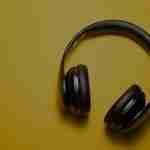We get hundreds of questions every month. We do our best to answer as many as we possibly can and write articles about the most provocative ones.
Below are answers to the most common questions, pointing you to the many articles that will help resolve the question. Enjoy.
Who should I transcribe?
Transcribing is an extremely personal process. I remember asking one of the great tenor saxophonist of today a similar question when I was 19. He told me that no one can tell you who to transcribe because that’s essentially who you’re going to be influenced by the most. He asked me who I listened to a lot. Who could I not get enough of. And said, “That’s who you should transcribe.”
Hopefully that gives you a better understanding of what transcribing means to your development and how important it is you make your own decisions about it. Everybody’s list of who to transcribe would be completely different because we all have differing ideas of what we want to sound like and what kind of language we want to absorb.
Refer to these articles:
- Transcribing is not Transcribing
- Transcribe With a Purpose
- How transcribing One Solo Can Change Your Approach
- Practicing less and improving more through transcription
- Overcoming Obstacles in Transcription
- Isolating Each Chorus in a Transcription
- Getting More From Transcribing
I’m learning language but now I feel like I’m just playing practiced material. How do I get beyond this?
Learning language often starts out like this. You memorize a line. You drill it over and over in all keys. And then you start to apply it to tunes. It feels like you’re being unoriginal and not improvising, but the key is to keep going. There’s a point where you transcend this cut-and-paste mentality and you start to combine your new language with other language and concepts in new ways.
Read these:
My phrasing and sense of time are horrible. How can I improve them?
If your phrasing and sense of time is shaky, everything else will sound shaky. Transcribing automatically helps you improve in these areas. Working with a metronome on 2 and 4 helps. And varying your phrase lengths, or starting on different parts of the measure will help you gain freedom.
Check these out:
- Learn How to Use Space in Your Solos
- Practice With a Metronome on Beats 2 and 4
- Integrating New Rhythms into Your Playing
What should I practice?
We get this question a lot. The entire site is essentially dedicated to this question, but I think what people really want to know is how to split up their time on various topics of practice. It also helps to know what not to practice.
These will help with that:
- Time to Overhaul Your Practice Routine
- Practice Less and Improve More
- 10 Jazz Tips to Remember
- Don’t Make These 6 Mistakes
- How Play Alongs Can Waste Your Time
How do I play fast?
To play fast, you need to learn to play slow and lock in with the time. You also need to have a solid base of language to draw from so that you’re not just mindlessly running up and down scales.
Refer to these:
How should I learn tunes?
Learning tunes is what it’s all about. But it’s more than simply knowing your way around a tune. You want to be free when you solo over a tune, have a myriad of options at your disposal, letting your creativity take over.
Check these out:
- 5 Tunes to Know and Why
- Never Forget a Tune Again
- Building Your Repertoire
- 10 More Tunes To Know
- Applying Concepts to Tunes
How should I train my ear?
Ear training is thrown to the wayside in favor of practicing technique or harmonic concepts. Practice ear training daily. It’s fun and the rewards are huge. If the exercises say you need a partner and you don’t have one, just play both roles and pay even more attention to the nuances in every sound.
See these:
- Fundamental Jazz Ear Training
- Fundamental Jazz Ear Training With Seventh Chords
- 3 Reasons to Sing Everyday
- Hearing Chord Changes
- Connecting Your Ears to Your Instrument
- Getting a Vivid Aural Imagination
- Master Your Intervals in 28 Days
- Hearing Chord Tones
I know all the scales and arpeggios to a tune. Why can I still not improvise well over it?
Scales and arpeggios are a small piece of the puzzle. The main ingredient that will bridge the gap between theoretical knowledge and practical knowledge is language. Transcribe and learn language.
Read these:
- Licks Versus Language
- The Importance of Jazz Language
- Acquiring Jazz Language
- Transcribing is not Transcribing
- Transcribe With a Purpose
- How transcribing One Solo Can Change Your Approach
- Concept Application
I transcribed a solo and notice a lot of “wrong” notes. How is the soloist playing these wrong notes and still sounding good?
These “wrong” notes are not actually wrong. By studying theory more than studying what the great musicians played, we form a false model of what’s possible. Then, if something doesn’t neatly fit into this theoretical model, we assume it must be wrong. In general, these wrong notes are part of a logical harmonic structure that the soloist superimposes on-top of the original structure.
Refer to:
What are more valuable, scales or chords?
Both scales and chords are valuable. Understanding chords is primary. Corresponding scales to chords are supplementary. Not the other way around. Both chords and scales are supplementary to jazz language.
Refer to these:










